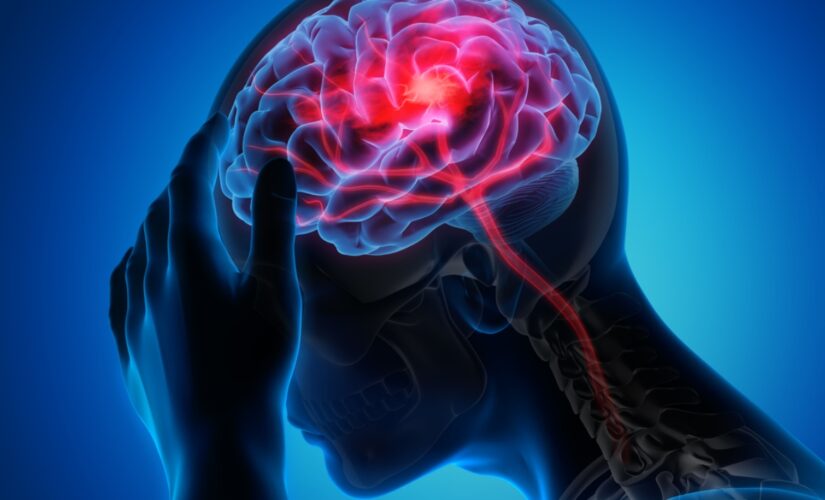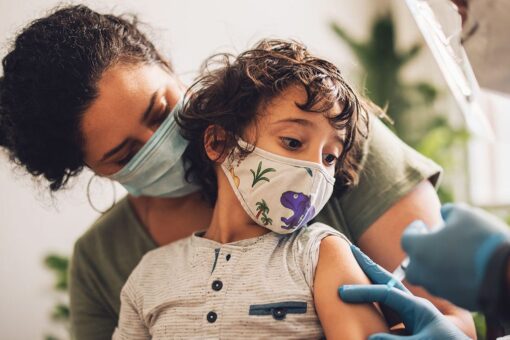NEWYou can now listen to Fox News articles!
Model Hailey Bieber has said she is fine after suffering a small blood clot to her brain this past week
“On Thursday morning, I was sitting at breakfast with my husband when I started having stroke-like symptoms and was taken to the hospital,” the 25-year-old wrote on Instagram.
“They found I had suffered a very small blood clot to my brain, which caused a small lack of oxygen, but my body had passed it on its own and I recovered completely within a few hours,” she said.
Bieber’s experience is shedding light on the risk of stroke for young Americans.
HAILEY BALDWIN ‘DOING WELL’ AFTER BLOOD CLOT FOUND IN HER BRAIN: ‘ONE OF THE SCARIEST MOMENTS’
Stroke is the fifth cause of death in the U.S. and a leading cause of disability.
In 2018, 1 in every 6 deaths from cardiovascular disease was due to stroke and someone in the U.S. has a stroke every 40 seconds.
It affects the arteries leading to the brain and within the brain.
Hailey Bieber attends Nickelodeon’s Kids’ Choice Awards at Barker Hangar on March 13, 2021 in Santa Monica, California.
(Amy Sussman/KCA2021/Getty Images for Nickelodeon)
A stroke occurs when a blood vessel that carries oxygen and nutrients to the brain is either blocked by a clot or bursts. In turn, part of the brain cannot get the blood and oxygen it needs, leading it and the brain cells to die.
According to the Centers for Disease Control and Prevention (CDC), the three main types of stroke are ischemic, hemorrhagic and a transient ischemic attack, or TIA.
87% are ischemic strokes when blood flow through the artery that supplies oxygen-rich blood to the brain becomes blocked.
A hemorrhagic stroke occurs when an artery in the brain leaks blood or ruptures, pressuring and damaging brain cells, whereas during a TIA blood flow to the brain is blocked only for a short time.
TIAs are a warning sign of a future stroke and are a medical emergency.
BLOOD TEST COULD PREDICT SEVERE PREGNANCY COMPLICATION
(iStock)
Anyone can have a stroke at any time – including children – and having a stroke means the patient is at greater risk of having another.
The symptoms of stroke include the “F.A.S.T.” warning signs: face drooping, arm weakness and speech difficulty.” The “T” stands for “time to call 911.”
In addition, people should watch for sudden numbness, confusion, trouble seeing, trouble walking and severe headache.
Early action is important for stroke, as the chances for survival improve when emergency treatment begins quickly.
According to a 2020 study, around 10-15% of strokes occur in people under the age of 50, although the risk of stroke increases with age.
Women face a higher risk of stroke and Stroke.org reports that one in five women have a stroke.
About 55,000 more women than men have a stroke each year and strokes kills more than 80,000 women annually.
This may be due to pregnancy, preeclampsia, birth control pills, hormone replacement therapy, migraines with aura or atrial fibrillation.
CLICK HERE TO GET THE FOX NEWS APP
The risk of having a first stroke is nearly twice as high for Black people as for White people.
Unhealthy habits like smoking, drinking too much alcohol, not getting enough exercise and having high blood pressure, high cholesterol, diabetes or obesity can increase the risk of stroke.
Keys to preventing stroke include treating high blood pressure by maintaining a healthy weight and a diet low in sodium, being physically active, not smoking, limiting alcohol use and preventing or managing other health conditions.




